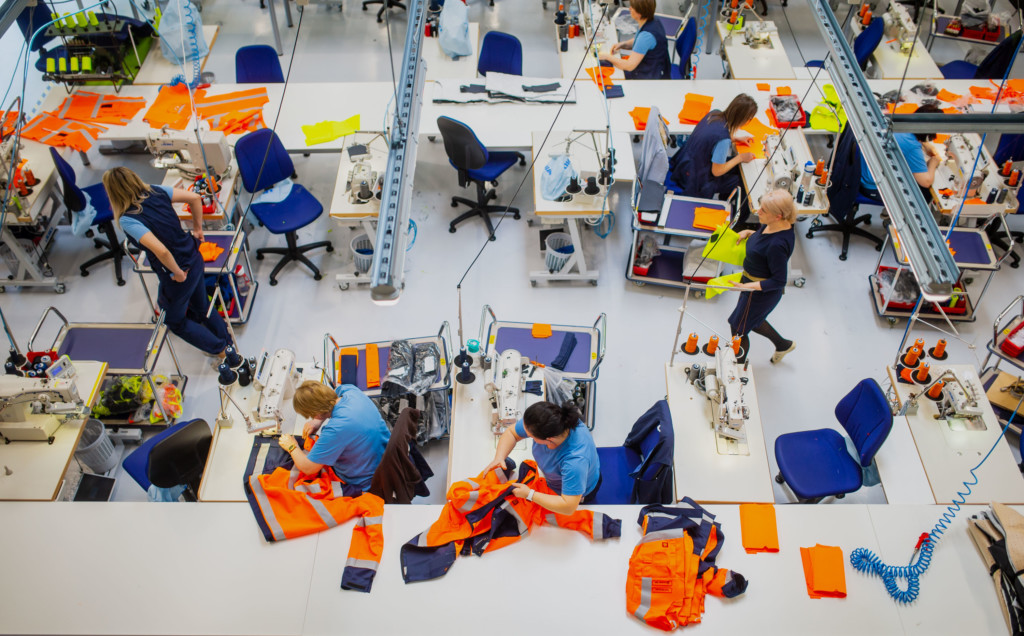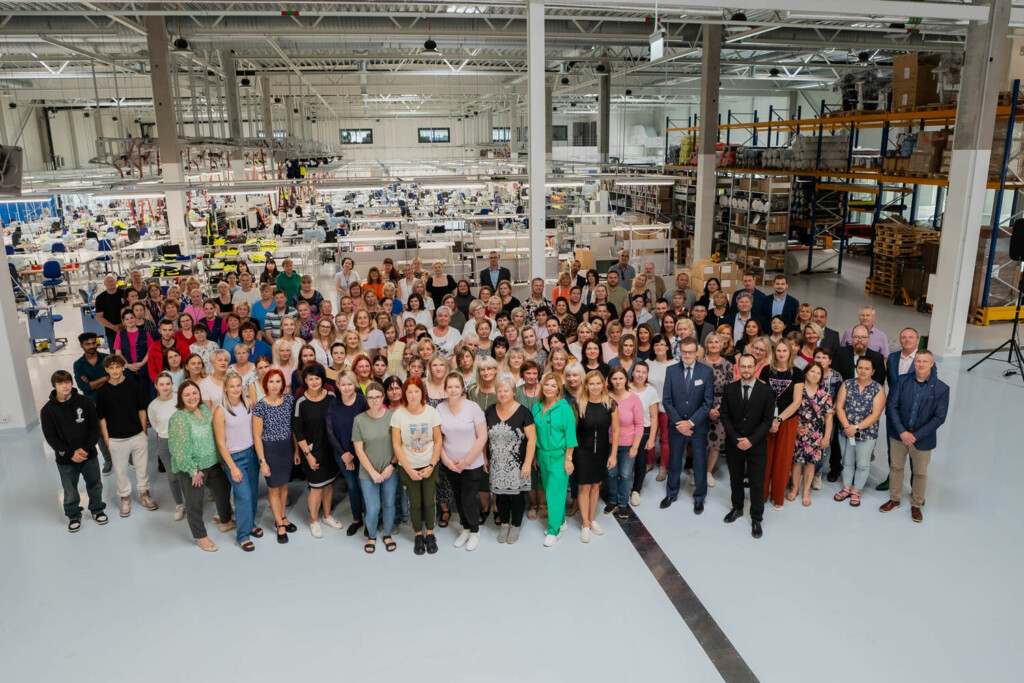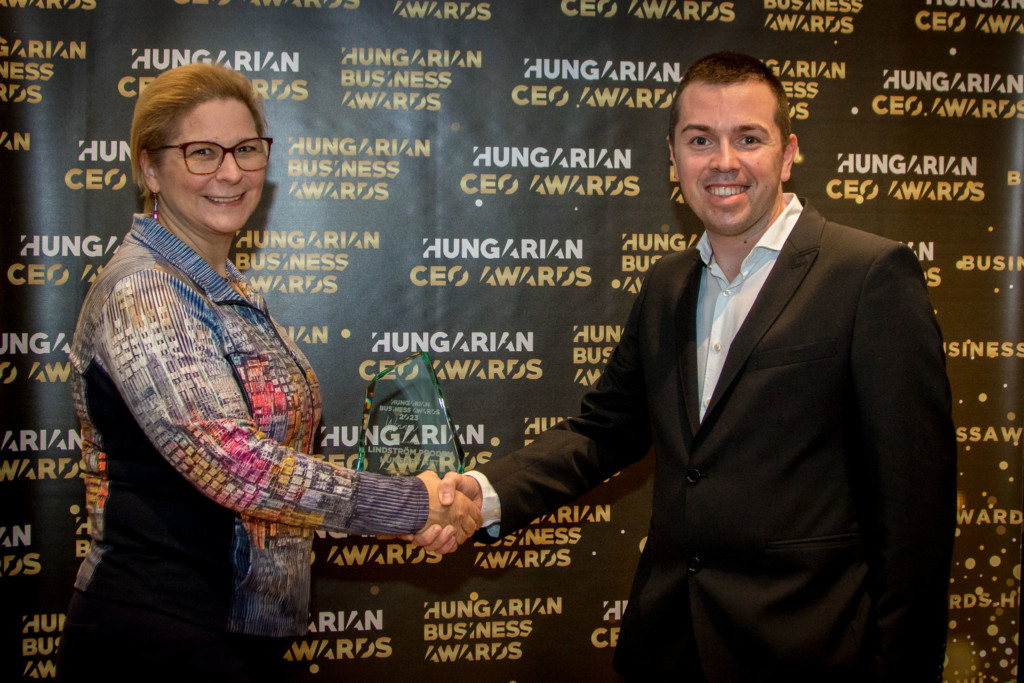
Without our experienced people, we couldn’t have such a successful production unit.
Gusts Dzenis is Managing Director of the Prodem factory in Tukums, Latvia—one of our three production-on-demand factories. He joined the company eight years ago, bringing almost 10 years of experience in garment manufacturing. Gusts began his career in the industry after university, starting with physical roles in fabric handling and cutting.
With an educational background in economics and accounting, Gusts was drawn to the logic and principles of production. “I’m an accountant by profession, though I haven’t worked a single day as an accountant and I couldn’t imagine working as one. I always imagined that I would wind up in production one way or another, and I did,” says Gusts.
Balancing stakeholder and employee interests
Gusts leads Lindström’s Latvian factory, which has grown from 90 to 160 workers since it opened seven years ago. He has helped expand the site while driving improvements across environmental, social, and governance practices.
In his role, Gusts collaborates closely with managers, technologists, pattern designers, and other stakeholders. Committed to continuous improvement, he fosters a culture of growth within his team to optimise production flow and minimise waste.
It’s very difficult to recycle garment waste for workwear textiles since there are combinations of different materials, but we’re looking at how to recycle all the waste from production. We’re improving as much as possible all the time.
Gusts is dedicated to striking a balance between stakeholder interests and employee well-being and productivity. He actively monitors production performance and ensures a healthy work environment for his team.
Gusts shares: “Without our experienced people, we couldn’t have such a successful production unit. At the same time, we’re not here to only make ourselves happy—we have to make our stakeholders happy. So my mission is to find the place where their interests meet so I can ensure the best results for both parties.”
Gusts Dzenis is committed to lean manufacturing
Gusts is a strong advocate of lean manufacturing principles, which have been crucial to the production hub’s success.
Our factory is quite a unique place. We specialise in the rapid production of small-scale orders, catering to tight timelines with exceptional efficiency. Normally in garment manufacturing, you have lead times of 40 to 60, or even 100 days, and order sizes in hundreds and even thousands at the same time.
Unlike mass production where tasks are repetitive and operators are easily replaceable, lean manufacturing is healthy for the human brain. “The team here that makes one garment consists of eight people. This means everyone has to know many operations and often shift from one product to another. Their work is not monotonous.”
As sustainability becomes increasingly important, more garment manufacturers will have to shift from mass to small batch production to align with evolving industry demands.
Upholding high standards and developing talent
Labour shortages are common across Europe. To overcome this challenge, Gusts and his team work with other sewing companies in Latvia, hiring and training individuals with no sewing experience. This investment in talent development has helped their operations grow and remain sustainable.
“It can take up to six months or even a year for a sewer to get to a good level. But since we know that we need these resources, we are ready to invest,” says Gusts.
I’m proud that our team has been able to continue growing, because many people believe that the sewing industry in Europe is dying. But every day, we are proving that’s not true. We can attract new, young people because we’ve set up working conditions with such high standards that most other employers here can’t compete with. Our company values and We Care culture make Lindström a great place to work.
The future of garment manufacturing
Gusts recognises the importance of adapting to evolving technologies and workforce expectations. “We cannot treat new generations in the workforce the same as 10 or 20 years ago. We have to change together with them,” he says.
Gusts is especially interested in exploring technologies like robotic exoskeletons, which can support garment manufacturing tasks while reducing the risk of occupational health issues.
“While we don’t aim to replace people with robots, there are so many ways that robotics can help with physical tasks. I’m keeping an eye on advancements in this area that could improve efficiency and decrease human effort.”
In the future, Gusts Dzenis hopes to expand Lindström’s Prodem concept by establishing new factories and further promoting sustainable, efficient manufacturing practices.




